Above & Beyond
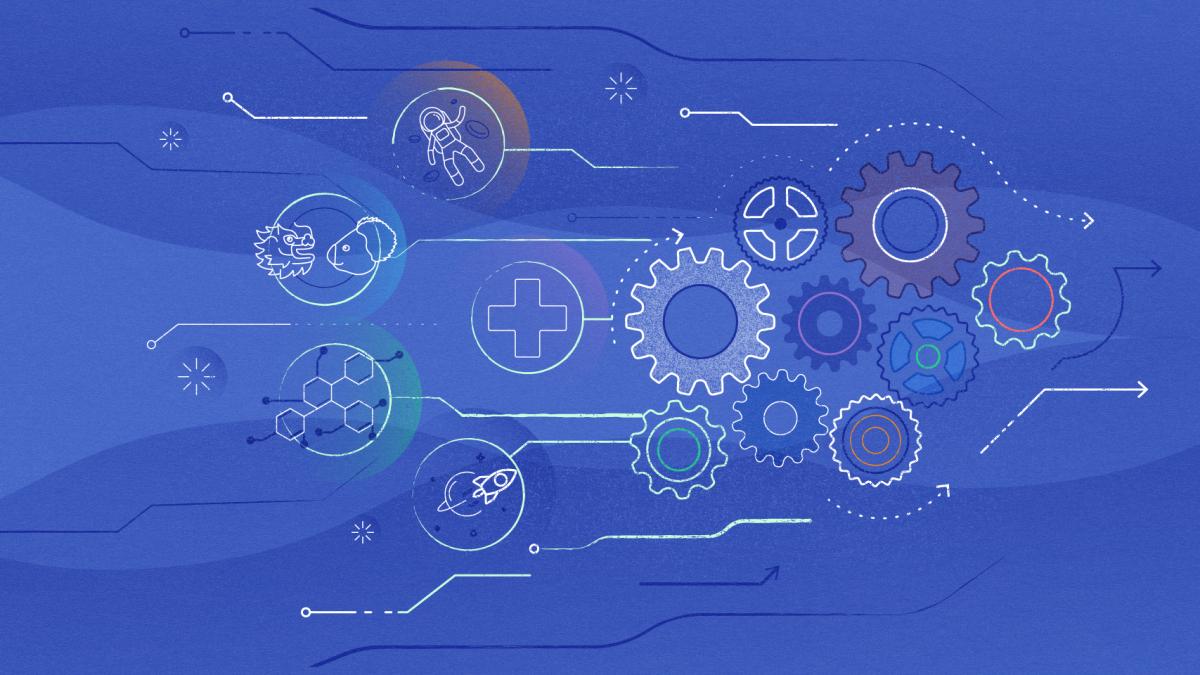
Professor Michael Kidd | Dr Michelle Chase | Dr Genevra Hart |
Dr Sebastian Sequoiah-Grayson | Associate Professor Kate Poole | Verity Firth
Join us for an evening of short talks from UNSW’s brightest minds that will urge you to think differently about how we might survive in our ever-changing world. Discover the future of accessible health, our brain’s secret superpowers, the future of Australia’s relationship with China, the latest in cutting edge blood research, and how we’re going to negotiate laws in space.
Professor Michael Kidd | UNSW and the Future of Australian Health Care
What would a future with more equitable healthcare look like? By emphasising the importance of collaboration and highlighting how the integration of medicine and data science can lead to advancements in patient care Professor Michael Kidd explores the pivotal role of UNSW in shaping the future of Australian health care.
Dr Michelle Chase | Making Space Law in the Twenty-First Century
International space law has a rich history that offers valuable lessons for today's challenges in protecting humanity’s use of outer space. So, what prospect is there that the space powers can agree new laws to ensure a smooth path into the next frontier of space use and exploration?
Dr Genevra Hart | Dopamine Habits
Embark on a journey into the labyrinth of the human brain with Dr Genevra Hart, as she reveals the staggering complexity of our neural networks. This exploration underscores the endless possibilities of neuroscience and its impact on our lives.
Dr Sebastian Sequoiah-Grayson | Australia and Asia: Working Together for a Prosperous Future
As Australia navigates its role in the 21st-century Asian landscape, Dr Sebastian Sequoiah-Grayson advocates for strengthening ties with Asia, fostering mutual understanding, and working together for a prosperous future.
Associate Professor Kate Poole | How Can We Better Prepare Our Astronauts For Space Travel?
Have you ever wondered why astronauts return from the space station weak and struggling to walk? Associate Professor Kate Poole dives into the physiological challenges faced by astronauts during and after their missions showcasing how space exploration can drive advancements in medical science.
LIVE EVENT & VENUE INFORMATION
Leighton Hall is located inside the John Niland Scientia Building at UNSW Sydney's Kensington campus. Please note this is a live event only, and will not be available via livestream.
TICKETS
ACCESS
Wheelchair Access
The closest accessible drop off point to Leighton Hall is via Gate 11, Botany Street. More information on getting there can be found via our interactive accessibility map available here.
Assisted Listening
Leighton Hall has hearing assistive technology available. Patrons wishing to utilise this service must collect a Roger™ inductive neck loop receiver from the venue staff, and this system can be used with a hearing aid or cochlear implant with a T-coil, or with headphones.
Auslan
This talk will be Auslan interpreted. Please select an Assisted Listening ticket when you register for your tickets. Front of house staff can assist in identifying Auslan seats on arrival at the venue.
Captioning
Live captioning can be provided for selected talks upon request.
Contact
To book and discuss access services, please call the Centre for Ideas on 02 9065 0485 or email centreforideas@unsw.edu.au.
PUBLIC TRANSPORT & PARKING
Leighton Hall (John Niland Scientia Building) is easily accessible via public transport. The closest light rail stop is the UNSW High Street (L2 line) and the closes bus stop is UNSW Gate 14, Barker Street (303). For more information please call the Transport Infoline on 131 500 or visit For more information please call the Transport Infoline on 131 500 or visit transportnsw.info.
Paid casual and visitor parking is offered via the CellOPark App and ‘pay by plate meters’ in all other UNSW car parks. The Botany St Car Park (Gate 11) parking station is the closest to the venue, and is located here. For more information head here.
CONTACT
For all enquiries, please email centreforideas@unsw.edu.au or call the Centre for Ideas on 02 9065 0485.
The Centre for Ideas is happy to receive phone calls via the National Relay Service. TTY users, phone 133 677, then ask for 02 9065 0485. Speak and Listen users, phone 1300 555 727 then ask for 02 9065 0485. For more information on all other relay calls visit here.
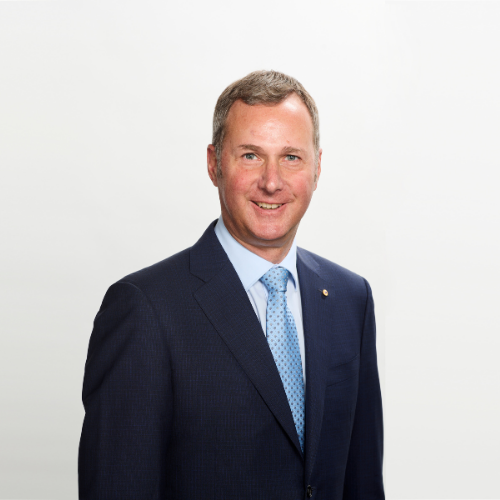
Professor Michael Kidd
Professor Michael Kidd AO FAHMS is the inaugural director of the Centre for Future Health Systems at UNSW Sydney. He also has a joint academic appointment as Professor of Global Primary Care and Future Health Systems at the University of Oxford. He has been involved in research on digital health innovation for more than 30 years, with a special focus on electronic patient records and prescriptions (e-prescribing), digital communication, artificial intelligence and telehealth. He served as the Deputy Chief Medical Officer of Australia throughout the COVID-19 pandemic with responsibility for the development and implementation of the nation’s primary care response to COVID-19.
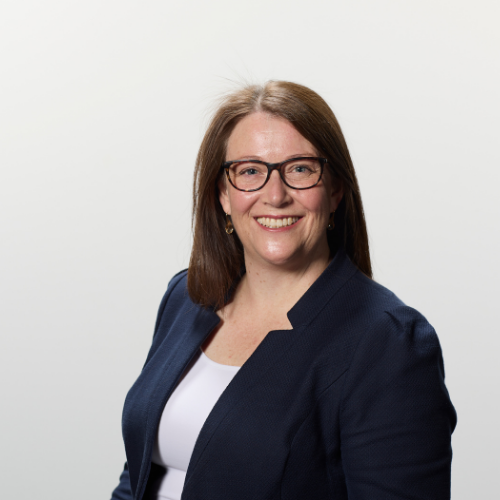
Dr Michelle Chase
Dr Michelle Chase completed her PhD in early 2024 as a candidate in the School of Humanities and Social Science at UNSW Canberra. Michelle’s doctoral research looked at the legal and political implications of proposals to ban the placement of all weapons in outer space, and China’s role as a leader of the non-weaponisation of outer space movement. Michelle was the recipient of the 2015 Maurice Blackburn Prize for best performing postgraduate student at UNSW Law & Justice, and undertook her PhD as a Scientia PhD candidate. Michelle currently works as a Research Officer at UNSW Sydney and casual academic at UNSW Canberra.
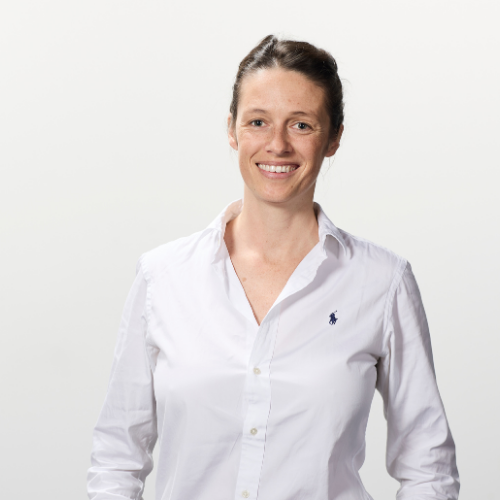
Dr Genevra Hart
Dr Genevra Hart is a lecturer in the School of Psychology at UNSW Science. Her work investigates how the brain controls decision-making, by guiding our choices towards current goals. While this function sounds simple it becomes challenging when our goals don’t align with ingrained habits. When the brain is in conflict between choosing new goals or old habits, specific neural processes need to be engaged to drive goal-directed choices, and these are the processes thought to be disrupted in addictions. She has published over 20 papers on this topic, which have been cited over 900 times.
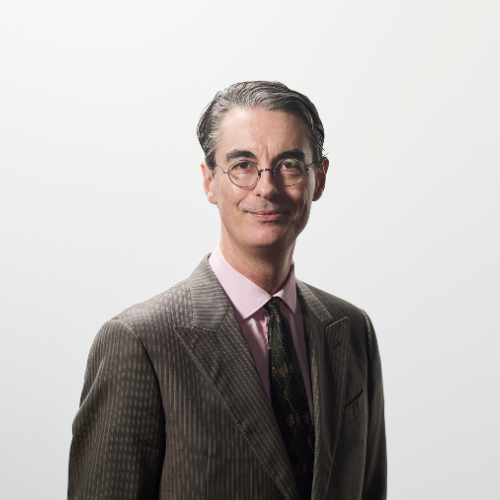
Professor Sebastian Sequoiah-Grayson
Dr Sebastian Sequoiah-Grayson is a Senior Lecturer in Epistemics at the School of Computer Science and Engineering at UNSW Engineering. Sebastian studied at the Faculty of Philosophy, University of Oxford, was a senior research fellow at the IEG at the Department of Computer Science at the University of Oxford. His research spans across all areas of logic, human information processing, and the ethics of artificial intelligence.
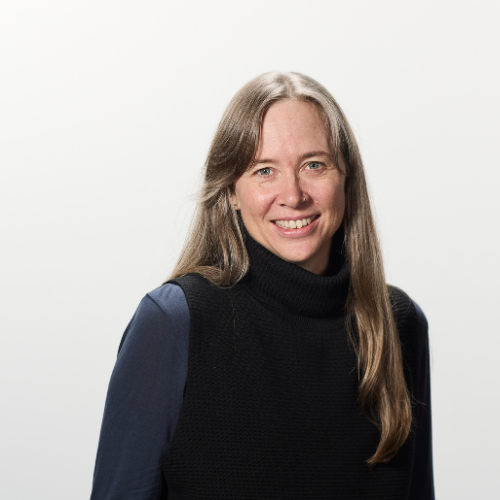
Associate Professor Kate Poole
Associate Professor Kate Poole is the Director of Research in the School of Biomedical Sciences at UNSW Medicine & Health. Her research seeks to understand how the cells that make up our bodies respond to the forces around them. She is currently investigating what happens to our cells under low gravity conditions to better understand how long-term space travel will impact human performance.
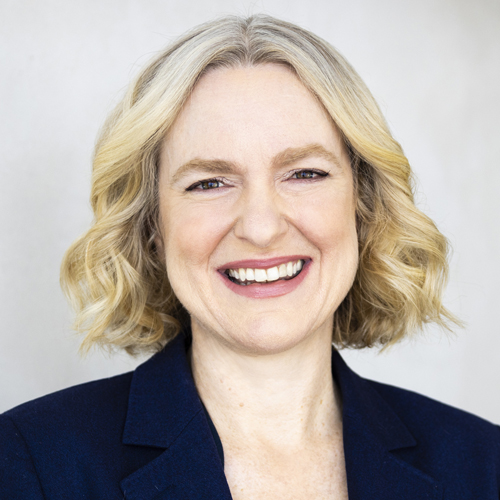
Verity Firth
IntroductionVerity Firth is the inaugural Vice-President Societal Impact, Equity and Engagement at UNSW Sydney. She has over 20 years’ experience at the very highest levels of government and education sectors in Australia. Prior to her role at UNSW, Verity was Pro Vice-Chancellor Social Justice and Inclusion at UTS (2015–2023), CEO of the Public Education Foundation (2011–2014) and NSW Minister for Education and Training (2008–2011). Verity is a member of the Commonwealth Government’s Implementation Advisory Committee for the Universities Accord.
